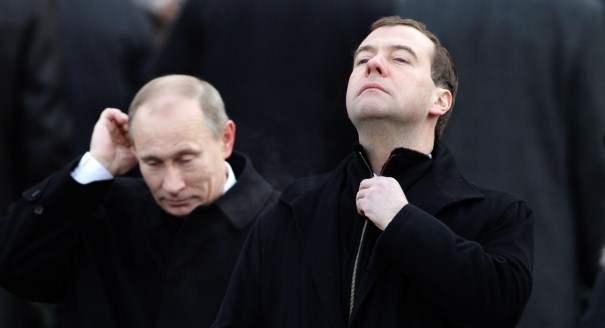As Russia’s parliamentary and presidential elections approach, long-simmering social, economic, and political disputes are spilling into the open, and public politics are returning to the fore. Uncertainty about the country’s future is also increasing, prompting both people and capital to flee the country. In a new Briefing, Nikolay Petrov highlights the challenges facing Russia and finds the country moving away from the policies that have governed it for the last decade.
Key Findings:
- Few political choices: The parliamentary elections this year—which feature back-room bargaining and electoral tricks—are laying the groundwork for the presidential election in 2012, with President Dmitry Medvedev or Prime Minister Vladimir Putin likely to be “coronated.”
- Limited modernization: By returning to its “old ways” of divvying up earnings from natural resources, Russia’s political class is adopting a political and economic model that will leave large portions of the country’s economy, as well as and political sphere, untouched by modernization.
- Forced dialogue: Russian authorities respond to the public only when faced with mass protests. The interaction between the authorities and society remain deinstitutionalized and the former do not make use of event the institutions they themselves created, whether the “proper” political parties or the Public Chamber. Instead, they search for ad-hoc, rather than systematic, solutions to address problems that arise.
Petrov argues that Putin’s Russia—which raised living standards, increased political apathy, and led to sovereign democracy—is over. Whatever era comes next, regardless of who is president, it will inevitably be very different.
